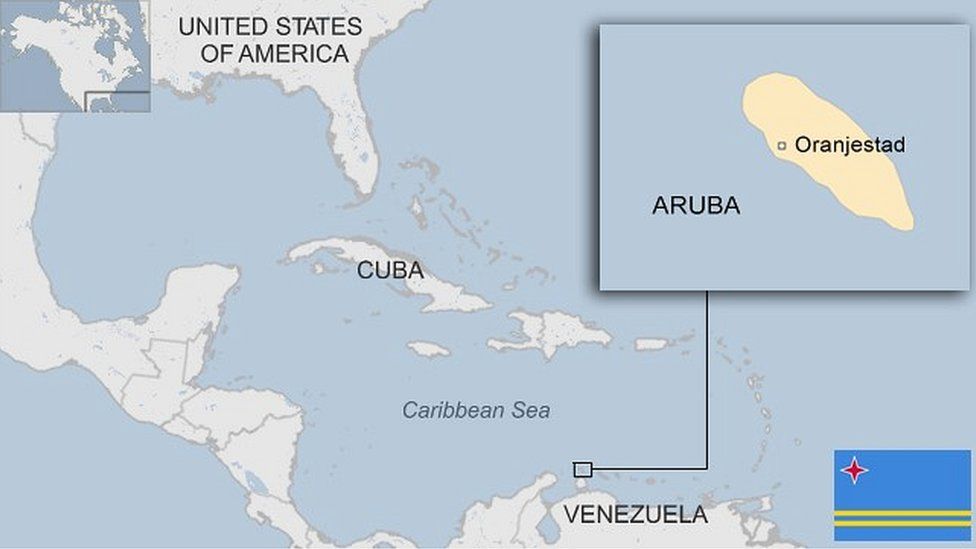Aruba profile
- Published

A tourist magnet and a fuel exporter, Aruba is an autonomous territory of the Netherlands and one of the most prosperous territories in the Caribbean.
Colonised by the Dutch in the 17th Century, Aruba lies 25km north of the coast of Venezuela. Away from the beaches, hotels and casinos, much of the island is desert-like but a strong indigenous heritage, colonisation and Latin American influence have given it a distinctive social and linguistic character.
A gold rush in the 1820s triggered an economic boom, with an oil refinery opening a century later. Its temporary closure in 1985 sparked an economic crisis and Aruba has since invested in tourism which is its economic mainstay.
Aruba is susceptible to drug smuggling and illegal immigration but has passed laws to combat money-laundering.
In 1986 Aruba pulled out of the Netherlands Antilles - a federation of Dutch Caribbean territories - and obtained separate status within the Kingdom of the Netherlands. The Dutch government controls defence and foreign affairs while the island's government handles local matters.
- Read more country profiles - Profiles by BBC Monitoring
COUNTRY OF ARUBA: FACTS
- Capital: Oranjestad
- Area: 180 sq km
- Population: 116,500
- Languages: Papiamento, Dutch
- Life expectancy: 73 years (men) 78 years (women)
LEADERS
Head of state: The King of the Netherlands, represented by a governor.
Prime minister: Evelyn Wever-Croes
Evelyn Wever-Croes was sworn in as Aruba's first female prime minister in November 2017.
A former tax lawyer, Wever-Croes began her political career in 2009 when she was elected to parliament as a member of the People's Electoral Movement (MEP). After only two years, she was elected to lead the party.
Under her leadership, the MEP won nine seats in the 2017 parliamentary elections, which allowed her to form a government with her coalition partners, Pueblo Orguyoso y Respeta (POR) and RED Democratico (RED).
She was returned to power after the June 2021 parliamentary elections at the head of a coalition government, as no party won an absolute majority.
MEDIA
Aruba observes freedom of the press, as guaranteed under Dutch law. The mostly widely-read newspapers are in the Papiamento language.
There are two commercial TV stations. A cable TV subscription service provides access to foreign channels and there are a wide range of commercial radio stations available.
TIMELINE
Some key dates in Aruba's history:
2500 BC-1515 - First inhabited by Amerindians of the Arawak tribe.
1499 - Spanish explorer Alonso de Ojeda discovers the island and claims it for Spain.
1636 - Aruba is colonised by the Dutch and forms part of the Dutch West India Company.
1806 - Aruba comes under British rule during the Napoleonic Was but is returned to the Dutch in 1816.
1954 - Aruba becomes part of the autonomous federation of the Netherlands Antilles.
1971 - Pro-independence struggle led by the People's Electoral Movement party (MEP) seek separation from Dutch Antilles administration.
1986 - Aruba obtains autonomous status within the Dutch kingdom.
1990 - Transition to full independence is postponed indefinitely at Aruba's request.
1996 - Aruba is included on US list of major drug-producing or transit countries.
2009 - OECD removes Aruba from an international list of uncooperative tax havens after it improves standards of transparency.
2017 - Evelyn Wever-Croes is sworn in as Aruba's first female prime minister.
Related Topics
- Published11 September 2023
- Published14 February 2023
- Published4 December 2023
- Published11 September 2023
- Published27 March 2023
- Published24 April 2023